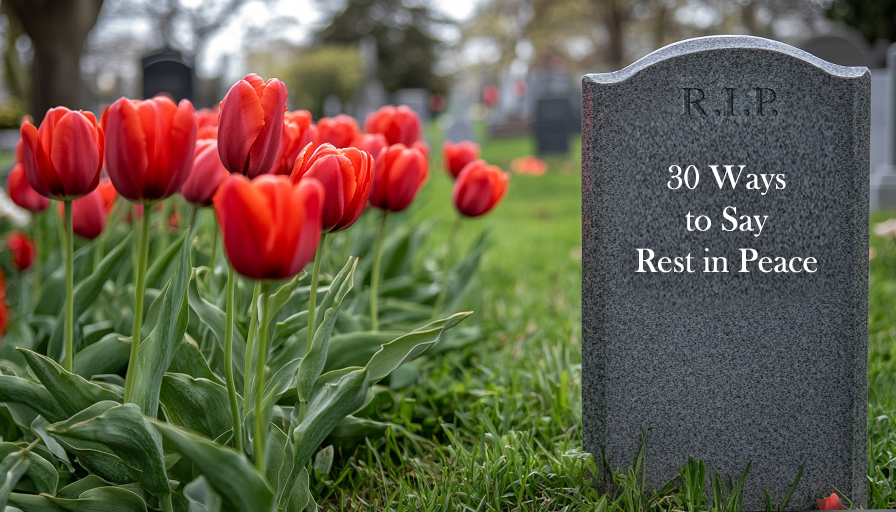Practical Information About Ash Scattering
Before diving into the rules and options for scattering ashes in each European country, it’s useful to understand the respectful and practical ways in which ashes can be scattered. Depending on your wishes and the chosen location, there are various tools and methods available to help carry out the scattering with care.
Would you like to learn more about how ash scattering works in practice? The following articles offer useful guidance and inspiration:
How Does a Scattering Tube Work? Respectfully Scattering Ashes
Discover how scattering tubes are designed to help you disperse ashes in a dignified and practical way.
Scattering Ashes and The Law
Learn about the legal aspects of ash scattering and what you need to consider before choosing a location.
A Complete Guide to Scattering Ashes
This comprehensive guide covers everything from preparation to ceremony ideas and practical considerations.
What You Need to Know About Scattering Ashes at Sea
Thinking of a sea burial? Explore the regulations, best practices, and tips for scattering ashes over water.
Scattering Ashes Ceremony Ideas
Find meaningful ideas to help you create a personal and heartfelt ash scattering ceremony.
Country-by-Country Guide to Ash Scattering in Europe
Scattering ashes in Albania
Cremation has only recently been legalised in Albania, and ash scattering remains relatively uncommon. Dominant religious traditions, particularly within Islamic and Orthodox Christian communities, have long discouraged cremation. Nonetheless, acceptance is gradually increasing in urban areas.
Scattering ashes is allowed on private property with the landowner’s permission. Scattering in natural settings or at sea is not explicitly regulated by law and therefore typically occurs based on local interpretation and with approval from local authorities. Bereaved families often choose symbolic sites in the mountains or along the Adriatic coast.
Scattering ashes in Andorra
In Andorra, the options for scattering ashes are limited by the country’s small size and strict regulations. Ash scattering is permitted in designated areas within cemeteries or on private land with explicit consent from the owner.
The natural surroundings of the Pyrenees offer a serene backdrop, but scattering there always requires coordination with the local municipality. Scattering on public natural land or protected areas is not permitted without a formal licence.
Scattering ashes in Armenia
Cremation is not widespread in Armenia due to the influence of the Armenian Apostolic Church, which has historically opposed the practice. Ash scattering is extremely rare and largely unregulated.
When families choose cremation, scattering typically takes place on private land with the owner's consent. Scattering in nature or public places is culturally uncommon and not specifically addressed by law. However, it may be tolerated on a case-by-case basis, especially in rural areas.
Scattering ashes in Austria
Austria maintains relatively strict rules concerning the scattering of ashes. Scattering is permitted only in specially designated areas within cemeteries or on private land with official permission. Scattering in the wild is only possible in exceptional cases.
Austrian law places strong emphasis on order and community respect. Exceptions can be made for mountainous regions, but approval from local authorities is essential. Families often choose a formal ceremony followed by a nature walk or quiet gathering.
Scattering ashes in Belgium
Belgium has detailed regulations on ash scattering. Ashes may only be scattered in municipal scattering gardens, cemeteries, or on private property with the explicit consent of the landowner. There are also clear rules for scattering at sea, such as a minimum required distance from the shoreline.
Municipalities are required to provide ash scattering facilities, often in the form of memorial forests or dedicated scattering fields designed to offer a peaceful environment. Many families also choose to scatter ashes in their own garden, which is a popular option due to its intimate and personal nature.
Scattering ashes in Bosnia and Herzegovina
Cremation is legal in Bosnia and Herzegovina but remains rare, largely due to the influence of religious traditions within Islamic, Catholic, and Orthodox communities. Scattering ashes is permitted on private land with the owner's consent, though it is not explicitly mentioned in national legislation.
Due to the country’s geography, scattering at sea is uncommon. However, mountainous and rural areas are sometimes chosen as symbolic locations for farewells. Official scattering fields are scarce, and organising a scattering typically requires consultation with local authorities.
Scattering ashes in Bulgaria
Bulgaria enforces relatively strict rules regarding the scattering of ashes. Cremated remains may only be scattered in designated areas such as cemeteries and official scattering fields. Scattering in nature is generally not allowed without specific permission from local authorities.
However, special memorial locations do exist, particularly near Sofia and Varna, and are equipped for ash scattering. Scattering at sea is possible but requires authorisation. Families often opt for formal ceremonies led by professionals to ensure the farewell is conducted with dignity.
Scattering ashes in Croatia
In Croatia, scattering ashes is legally permitted, but primarily at sea. Scattering on land—such as in forests or nature reserves—requires approval from local authorities and is subject to strict environmental regulations.
The Adriatic Sea is a popular choice for sea scatterings, with families often hiring boats to conduct the farewell on water. There are also a few designated scattering areas near cemeteries for those who prefer a land-based ceremony.
Culturally, traditional burial rites are still highly valued in Croatia, but acceptance of cremation and ash scattering is growing, especially in urban areas such as Zagreb, Split, and Dubrovnik.
Scattering ashes in Cyprus
Scattering ashes is permitted in Cyprus but mainly limited to the sea and specially designated areas. Due to the island’s cultural diversity, clear procedures exist for both Greek and Turkish Cypriot communities. Local authorities must always be notified in advance.
Scattering at sea is common and often carried out from chartered boats. Families typically organise personalised ceremonies that reflect religious and cultural traditions, creating a meaningful and respectful farewell.
Scattering ashes in Czech Republic
The Czech Republic has relatively flexible regulations when it comes to scattering ashes. Scattering is allowed in designated fields, as well as in natural areas, provided that permission is obtained from both the landowner and the local municipality.
Popular locations include the Vltava River, forests, and mountain ranges. Czech society is generally tolerant of various funeral practices, and many families choose intimate, nature-based ceremonies to honour their loved ones.
Scattering ashes in Denmark
In Denmark, scattering ashes is legal, particularly at sea and in certain approved areas. Scattering on private land requires the explicit consent of both the owner and local authorities. Many municipalities offer dedicated scattering gardens, often situated in quiet, natural settings.
Sea scatterings are especially popular along the Baltic and North Sea coasts and must be approved in advance. Danish families often choose peaceful natural environments such as woodlands and shorelines, which provide a meaningful connection to the departed.
Scattering ashes in Estonia
Estonia has relatively liberal policies regarding the scattering of ashes. Cremated remains may be scattered at sea and in natural locations, provided that permission is obtained from local authorities. Popular locations include the Baltic coast, lakes, and forested areas.
Estonian municipalities often provide designated memorial sites and scattering gardens set in serene surroundings. Families typically hold quiet, intimate ceremonies in nature, with a strong emphasis on environmental respect and cultural tradition.
Scattering ashes in Finland
In Finland, scattering ashes is generally permitted in lakes, forests, and at sea, provided that consent is obtained from the relevant local authorities or landowners. The country’s natural beauty—marked by vast forests and thousands of lakes—offers ideal settings for serene and meaningful farewell ceremonies.
Ash scattering is typically a modest and personal event, where close family members gather in peaceful surroundings. Some municipalities also provide official memorial areas designed to offer a respectful place for remembrance.
Scattering ashes in France
France allows the scattering of ashes, but under strict conditions. It is permitted in nature—such as forests, mountains, and at sea—but strictly prohibited in urban areas, public parks, and gardens. Scattering on private land requires the owner’s written permission and must be declared to the local authorities.
The sea is a particularly popular location, where scattering is often performed from boats. National parks and mountain areas are also commonly chosen, but authorities must always be informed in advance of the planned scattering.
Scattering ashes in Germany
Germany maintains some of the strictest regulations in Europe regarding ash scattering. It is generally prohibited to scatter ashes freely in nature or public spaces. Ashes must be buried or placed in a columbarium or urn grave within a designated cemetery.
Scattering at sea is allowed, but only in specifically authorised maritime zones, such as parts of the North Sea and the Baltic Sea. These scatterings are usually conducted by specialised services that provide the exact coordinates and formal documentation. Families typically receive a certificate detailing the location of the scattering.
Scattering ashes in Greece
In Greece, ashes may be scattered at sea or in remote natural areas, provided prior approval is obtained from the relevant local authorities. Due to the country’s landscape—comprising numerous islands and extensive coastlines—many suitable sites exist for dignified ash scattering.
Ceremonies are usually conducted from boats, especially near popular islands such as Crete, Santorini, and Rhodes. Religious beliefs and family traditions often play a central role in these farewells, with a focus on honour and reverence for the deceased.
Scattering ashes in Hungary
Hungary enforces relatively strict regulations regarding the scattering of ashes. It is generally permitted only in designated cemetery areas or official scattering fields. Scattering in natural settings requires special approval from local authorities.
The Hungarian government offers formal sites for scattering, typically located within landscaped parks and cemeteries. Scattering on water is possible but less common and subject to regulations. Most families organise formal ceremonies, often with the assistance of professional funeral services.
Scattering ashes in Iceland
In Iceland, ash scattering is permitted but subject to strict regulations due to the country’s sensitive natural environment. Scattering at sea is common and generally does not require a permit, as long as it is done respectfully. This often takes place along the coast or in open waters, with the dramatic Icelandic landscape offering a powerful setting for farewell ceremonies.
Scattering on land—such as in national parks or geothermal areas—requires approval from environmental agencies and local authorities. Icelandic culture places strong emphasis on nature preservation, which is why families often opt for small, intimate ceremonies in remote areas that honour both the deceased and the surrounding landscape.
Scattering ashes in Ireland
In Ireland, scattering ashes is largely unregulated and generally considered a personal choice. Sea, river, and lakeside scatterings are common and do not require a permit, as long as they are carried out respectfully and without causing public disturbance.
Scattering on private property is allowed with the landowner’s consent. Many Irish families select symbolic locations such as the Cliffs of Moher, national parks, or coastal areas, where the natural beauty provides a peaceful backdrop for remembrance.
Although there are few legal restrictions, it is advisable to consult local authorities when using popular or protected areas to avoid misunderstandings and ensure respectful conduct.
Scattering ashes in Italy
In Italy, prior authorisation from local authorities is required before scattering ashes. It is generally permitted in natural environments such as seas, mountains, and forests, but strictly forbidden in urban areas.
Families often choose iconic locations such as the Tuscan countryside, the coasts of Sicily or Sardinia, or the Alpine region. The process can involve a certain degree of bureaucracy, as permission may be needed from both municipal and regional authorities.
Scattering ashes in Latvia
In Latvia, ashes may be scattered at sea, on lakes, and in forests, provided that permission has been obtained from the local authority or the landowner. The Baltic Sea and the country’s vast pine forests are particularly popular locations for scattering.
While some cemeteries have designated scattering fields, many families prefer natural settings. Ceremonies are often intimate, focusing on a connection with nature—an important element in Latvian cultural traditions.
Although the regulations are relatively relaxed, authorities recommend prior consultation, especially when considering protected areas or national parks. This ensures respectful handling of both the environment and community norms.
Scattering ashes in Liechtenstein
In Liechtenstein, rules surrounding ash scattering are similar to those in neighbouring Switzerland, though somewhat stricter due to the country’s limited land area. Scattering is permitted only within designated fields at cemeteries or on private land with the landowner’s explicit consent.
Scattering in the wild—such as in alpine areas—is rarely authorised and requires extensive approval from local authorities. Families often hold ceremonies in the peaceful alpine surroundings, where the country’s small scale creates an intimate and reflective setting.
Scattering ashes in Lithuania
In Lithuania, ash scattering is permitted in natural environments such as the sea, forests, and lakes, with prior consent from relevant authorities or landowners. Popular locations include the Baltic coast and the lakes of the Aukštaitija region, offering meaningful settings for personal farewells.
Traditionally, burial was the norm in Lithuania, but cremation and ash scattering have become more common in recent decades. Some cemeteries now also offer official scattering fields for those preferring a formal location.
Lithuanian society places high value on nature and quiet reflection. Ceremonies are often small and respectful, with each region applying slightly different local guidelines—so families are encouraged to check in advance.
Scattering ashes in Luxembourg
In Luxembourg, ash scattering is permitted but subject to specific regulations. Scattering may take place in designated fields within cemeteries. Scattering on private or public land is allowed only with explicit consent from the landowner and local authorities.
The government provides clear guidelines and has established several serene scattering areas, often equipped with memorial stones or plaques. Scattering over water—such as the River Moselle—is also possible under strict conditions and with prior authorisation.
Scattering ashes in Malta
On Malta, ash scattering is uncommon and tightly regulated. Authorities allow scattering at sea, provided it takes place at a sufficient distance from the coastline and with a permit issued by the Maritime Authority.
Scattering on land—whether in nature reserves or on private property—is highly restricted and requires extensive permission. Due to Malta’s strong Catholic traditions, most families opt to inter the urn in a columbarium or family grave rather than choose scattering.
Scattering ashes in Moldova
In Moldova, cremation is still rare and not widely available. Influenced by the dominant Orthodox Church, burial remains the most common practice, and ash scattering is culturally uncommon. The law does not specifically address it, meaning that scattering on private land may be possible with the landowner’s consent.
Scattering in public spaces, rivers, or nature areas is rarely permitted and would require exceptional approval. Families who choose cremation and scattering usually do so privately, on family land and out of public view.
Scattering ashes in Monaco
Due to its small size, Monaco enforces strict rules regarding ash scattering. Scattering at sea is permitted, provided it occurs at a respectful distance from the coast and with approval from the Maritime Authority.
Scattering on land—in parks or public areas—is not allowed. It may be possible on private property, provided the landowner and local authorities give explicit consent. Many residents opt for columbarium interment or choose to scatter ashes in international waters outside Monaco’s territorial limits.
Scattering ashes in Montenegro
Cremation in Montenegro is relatively new and not yet widespread, in part due to the strong influence of the Serbian Orthodox Church, which traditionally favours burial. Ash scattering is not specifically regulated, but it is generally permitted on private property with the landowner’s consent.
Scattering in natural settings or at sea is rare and requires authorisation from local authorities. The country’s scenic coastline and mountainous regions—such as the Durmitor National Park—are occasionally chosen as symbolic and tranquil scattering sites.
Scattering ashes in Netherlands
In the Netherlands, cremated ashes may be scattered in public areas with prior permission from the local municipality. Many municipalities offer designated scattering fields and memorial forests. Scattering on private land is also allowed with the landowner’s consent. Scattering at sea is permitted without a licence, provided it occurs outside coastal waters.
Popular scattering locations are often places of personal or symbolic significance, such as nature reserves, beaches, or dedicated remembrance sites maintained by local councils or nature organisations. Professional scattering services are also available to help ensure a respectful and meaningful farewell.
Scattering ashes in North Macedonia
Cremation has only recently become legal in North Macedonia and is not yet widely accepted. The majority of the population, with an Orthodox Christian background, traditionally chooses burial. Ash scattering is not specifically regulated by law but may be carried out on private property with the owner’s consent.
Scattering in public places or nature is uncommon and typically requires approval from local authorities. As cremation becomes more accepted in urban areas, families are beginning to seek out symbolic locations such as mountains or lakes, including Lake Ohrid, for intimate scatterings.
Scattering ashes in Norway
In Norway, ash scattering is legal and relatively common, provided that permission is obtained from the local municipality or the Fylkesmannen (county governor). It is allowed to scatter ashes at sea, in lakes, or in the mountains, as long as it does not cause disturbance to others.
Sea scatterings are particularly popular, especially along the fjords and coastal areas. Families often choose small, nature-focused ceremonies. Some municipalities also offer official scattering fields near cemeteries for those who prefer a formal site.
Scattering ashes in Poland
In Poland, scattering ashes in public places or in nature is not legally permitted. By law, cremated remains must be interred in a cemetery—either in an urn grave, a columbarium wall, or an underground vault.
There are a few scattering fields located within cemeteries, but these are rare. Scattering at sea or on private land is not allowed. Poland’s Catholic traditions and emphasis on grave preservation strongly influence its strict approach to cremation and memorialisation.
Scattering ashes in Portugal
In Portugal, ash scattering is permitted but regulated. Scattering at sea is allowed with prior approval from the Maritime Authority and usually takes place several kilometres from the coast.
On land, scattering is permitted on private property with the landowner’s consent and at certain municipal cemeteries with designated scattering areas. Scattering in protected nature reserves or national parks is prohibited without a special permit. Portuguese families often choose meaningful locations, such as the Atlantic Ocean or vineyards, for personal and symbolic farewells.
Scattering ashes in Romania
Ash scattering is a relatively new concept in Romania and not yet widely accepted. Current legislation requires that cremated remains be interred in cemeteries. Scattering in nature or on private land is only possible with a special permit from the local authorities.
Scattering at sea or in rivers is extremely rare and culturally uncommon. The Romanian Orthodox Church plays a central role in funeral traditions and continues to promote traditional burial. However, cremation is slowly gaining popularity in urban areas, leading to a gradual increase in scattering requests.
Scattering ashes in San Marino
In San Marino, ash scattering is allowed but strictly regulated. Given the small size of the country, scattering is limited to designated areas within cemeteries or on private land with the owner’s consent.
Scattering in nature or public places is not permitted without a special licence. For this reason, many residents choose to scatter ashes at sea, typically just outside San Marino’s territorial waters, such as along the nearby Italian coastline near Rimini.
Scattering ashes in Serbia
Cremation is legal in Serbia, but not widely practised, largely due to the influence of the Serbian Orthodox Church, which traditionally opposes cremation. Ash scattering is not clearly defined in national law but may be carried out on private land with the landowner’s consent.
Scattering in natural areas or public spaces requires authorisation from local authorities and remains uncommon. Families who opt for scattering often choose symbolic locations along the Danube, in forests, or in mountainous regions, although such ceremonies are generally private and rare.
Scattering ashes in Slovakia
In Slovakia, scattering ashes is limited and only permitted in designated cemetery fields. Scattering in nature, on water, or on private land is not legally allowed.
Although Catholic tradition is still strong in Slovakia, cremation is gaining acceptance. As a result, scattering fields are gradually being introduced in larger municipalities. Families who wish for a more natural farewell often combine a formal scattering with a private remembrance moment in the surrounding landscape.
Scattering ashes in Slovenia
Slovenia permits ash scattering under strict conditions. It may take place in designated scattering areas, usually located in or near cemeteries. Scattering in nature is allowed only with the approval of local authorities and landowners.
The Slovenian Alps, lakes, and forests are popular settings for meaningful ceremonies, but official consent is essential. Families often prefer intimate gatherings, sometimes combined with nature walks, to honour the deceased in a peaceful environment.
Scattering ashes in Spain
Spain has region-specific regulations regarding ash scattering. Generally, ashes may be scattered at sea or in designated natural areas, provided permission is obtained from the relevant local authorities.
In cities, there are special memorial parks and cemetery scattering fields. Popular scattering locations include the Mediterranean coast, the Sierra Nevada mountains, and the Canary Islands. Spanish authorities advise families to confirm local requirements beforehand to avoid complications.
Scattering ashes in Sweden
Sweden has liberal rules for ash scattering. Bereaved families may scatter ashes in natural settings, such as forests, mountains, and at sea, but they must first obtain approval from the local authorities or the landowner.
Sea scattering is especially popular, thanks to Sweden’s long coastline and numerous lakes. Swedish culture places strong emphasis on nature, and many families choose serene environments for personal farewells. Municipalities also offer official scattering areas at cemeteries for those who prefer a designated space.
Scattering ashes in Switzerland
Switzerland is known for its flexible and permissive regulations regarding ash scattering. It is legal to scatter ashes in nature—such as in the mountains, forests, lakes, or rivers—as long as it is done discreetly and without causing disturbance. No formal permit is required, provided the scattering does not take place within a cemetery.
Popular locations include the Alps, Lake Geneva, and Lake Constance. Many municipalities also offer designated scattering areas within cemeteries for those who prefer a permanent place of remembrance. Families often choose intimate ceremonies where the natural beauty of Switzerland plays a central role in the farewell.
Scattering ashes in Turkey
Cremation and ash scattering are practically forbidden in Turkey, largely due to the country’s strong Islamic traditions, which prescribe burial as the only acceptable method of body disposition. There are virtually no crematoria, and national law does not support the practice of ash scattering.
Turkish citizens seeking cremation often travel abroad. If ashes are brought back into Turkey, any scattering is done discreetly on private land, out of public view and without official recognition.
Scattering ashes in Ukraine
Cremation is permitted in Ukraine, and ash scattering is possible, though subject to regulation. Most scatterings take place within designated cemetery fields. Scattering in nature—such as forests, rivers, or mountains—requires special authorisation from the local authorities.
The Ukrainian Orthodox Church traditionally favours burial, which continues to influence public attitudes. However, cremation and ash scattering are gaining acceptance in urban areas. Families increasingly combine formal memorial services with private moments in natural surroundings to honour the deceased in a more personal way.
Scattering ashes in United Kingdom
The United Kingdom has relatively relaxed rules regarding ash scattering. Ashes may be scattered in public places such as parks, rivers, and forests, provided it is done respectfully and without disrupting others. On private land, the landowner’s permission is required.
Well-known locations such as national parks and historic sites may require special permits from local authorities. British families often choose symbolic sites—like beaches, cliffs, or rural landscapes—that carry emotional significance.
Scattering ashes in Vatican City
Scattering ashes is strictly forbidden in Vatican City. Although the Catholic Church permits cremation, it requires that ashes be kept in a sacred place such as a cemetery, columbarium, or church-approved space.
Scattering ashes—whether in Vatican territory or elsewhere—is officially rejected by the Roman Catholic Church, as it is seen to conflict with the doctrine of bodily resurrection. Ashes may also not be divided among relatives or kept at home.
In Conclusion
Regulations and customs surrounding ash scattering vary greatly across Europe and are often highly detailed. It is essential to carefully check the local laws before scattering ashes to ensure that the farewell is carried out respectfully and without complications. Every country has its own unique traditions and special locations that can help families create a meaningful and personal goodbye.
















